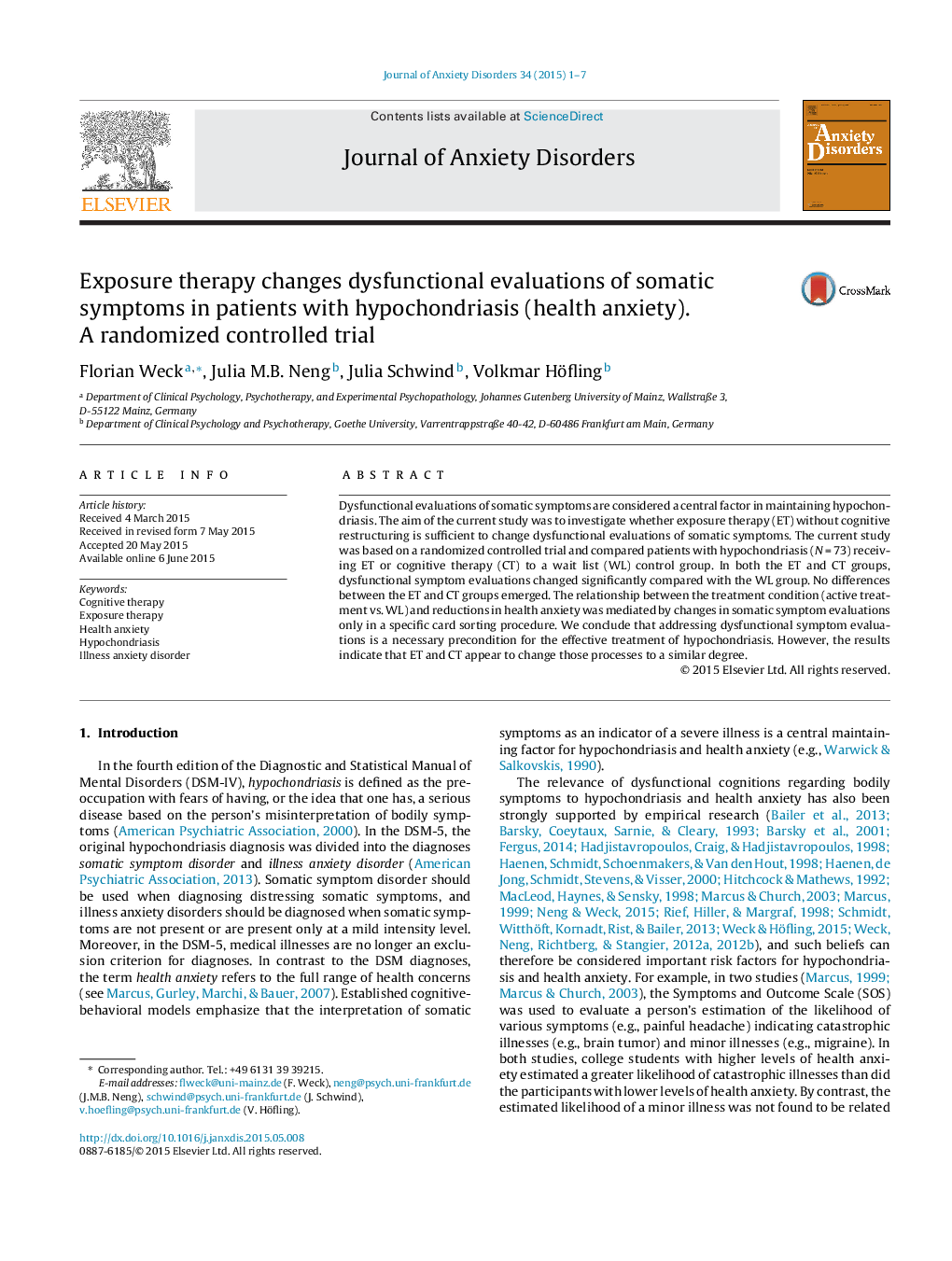| Article ID | Journal | Published Year | Pages | File Type |
|---|---|---|---|---|
| 909280 | Journal of Anxiety Disorders | 2015 | 7 Pages |
•Analyses were based on a randomized controlled trial for hypochondriasis.•Groups receiving either exposure therapy or cognitive therapy were compared with a waitlist control group.•Evaluations of dysfunctional somatic symptoms were assessed.•Exposure therapy was sufficient to produce changes in the evaluation of somatic symptoms.•Changes in dysfunctional symptom evaluations mediated changes in health anxiety.
Dysfunctional evaluations of somatic symptoms are considered a central factor in maintaining hypochondriasis. The aim of the current study was to investigate whether exposure therapy (ET) without cognitive restructuring is sufficient to change dysfunctional evaluations of somatic symptoms. The current study was based on a randomized controlled trial and compared patients with hypochondriasis (N = 73) receiving ET or cognitive therapy (CT) to a wait list (WL) control group. In both the ET and CT groups, dysfunctional symptom evaluations changed significantly compared with the WL group. No differences between the ET and CT groups emerged. The relationship between the treatment condition (active treatment vs. WL) and reductions in health anxiety was mediated by changes in somatic symptom evaluations only in a specific card sorting procedure. We conclude that addressing dysfunctional symptom evaluations is a necessary precondition for the effective treatment of hypochondriasis. However, the results indicate that ET and CT appear to change those processes to a similar degree.
